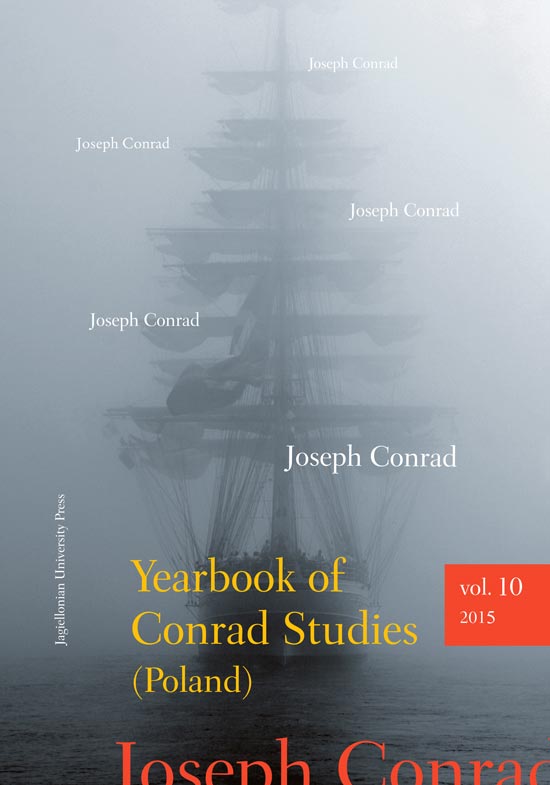Joseph Conrad’s Concept of the Gentleman
Joseph Conrad’s Concept of the Gentleman
Author(s): Olena TkachukSubject(s): Language and Literature Studies, Studies of Literature
Published by: Wydawnictwo Uniwersytetu Jagiellońskiego
Keywords: Conrad’s Concept of the Gentleman; aristocratic ethos; aristocratic code of honour; knightly code of honour; Bertrand Russell; Joseph Conrad
Summary/Abstract: Notwithstanding the Polish patriotism of Joseph Conrad – who, in the words of G. Morf, was “a descendant of an old Polish family of landowning gentry, whose class, with brilliant qualities […] had governed Poland for over three centuries” – he saw himself not as a Slav, but rather as a European in the broadest sense of the word. M. Amusin notes that Conrad “considered the problem of the ethnic and cultural self-determination of Poland in a future rejection of ‘Eastern roots’. Conrad believed that his native land did not belong to the Slavonic world. In his interpretation, Poland – with its Catholicism, democratic traditions and enlightenment – had always been an integral part of Europe, sharing Western ‘codes’ of public life and public opinion.” The ‘rating’ of the education of the Polish nobility was particularly high on the world stage. Comparing the aristocratic ethos of England and Poland, M. Ossowska observes that “the reproach of a lack of education generally does not apply” to the English and Polish aristocracy because “more than just memoirs, descriptions or hunting trips were stored in their libraries. Private art collections that have since enriched many a museum were often much more than aristocratic snobbery or the profitable investment of capital.” Though impoverished, the noble eastern borderland family of Joseph Conrad was distinguished by its high level of intellectual and spiritual education. “He was a man of noble rank, of gentle birth”, said Stefan Żeromski of Joseph Conrad. The writer’s father Apollo Korzeniowski, having studied at St. Petersburg University in the 1840s, had an extremely good knowledge of English and French literature and translated the works of Shakespeare and Victor Hugo into Polish. Tadeusz Bobrowski, the rich uncle who became Conrad’s guardian after his father’s death, was also a well-educated person and had a good knowledge of art. The foundations for Conrad’s ethical and humanistic stature were laid in his childhood. Someone who knew Conrad once remarked that “He thought in French, wrote in English and, when seriously ill, raved in Polish.” M. Sokolyanski notes that moral and ethical issues predominate in Conrad’s best works. Endorsing Conrad’s “traditional” values, Bertrand Russell described him as “a strict moralist”. Explaining his attitude to the heritage of noble ethics, Russell says: “Believing in the principle of personal honour, though its effects are often absurd and sometimes even tragic, is a thorough foundation […] If you dismiss the concept of honour as aristocratic arrogance and a tendency to violence, then it will remain something that helps a person to maintain decency and distribute the principle of mutual trust in social relations. I would not like to have this legacy of the knightly age completely lost.” In his autobiography, Russell calls Joseph Conrad “a Polish gentleman-aristocrat to the fingertips”. The British hereditary Earl Bertrand Arthur William Russell and the Polish nobleman Józef Teodor Konrad Nałęcz-Korzeniowski were united by those values which were otherwise known as the aristocratic ethos and the knightly code of honour.
Journal: Yearbook of Conrad Studies (Poland)
- Issue Year: 2015
- Issue No: X
- Page Range: 75-82
- Page Count: 8
- Language: English

